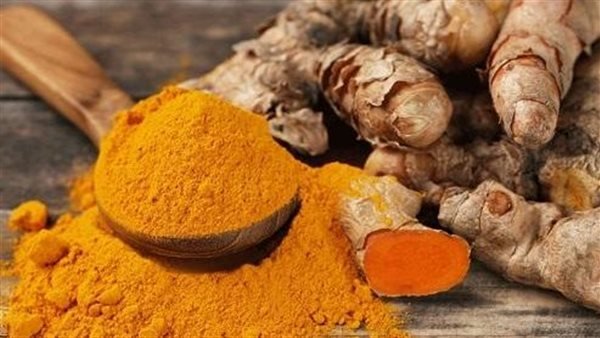
Friday 22/November/2024 – 10:19 PM
Turmeric is known for its many health benefits, anti-inflammatory and antioxidant properties, and has been used in traditional medicine for centuries. However, excessive consumption of turmeric can lead to harmful effects on health. Below are the possible side effects of excessive turmeric intake, and the safe amount that should be taken. Include it in the diet, according to what was published in Times Now News.
Digestive system problems
Turmeric helps digestion, but excessive intake may cause discomfort in the digestive system, and high doses of curcumin, the active compound in turmeric, may irritate the stomach lining, leading to acid reflux, bloating, or diarrhea, so you must stick to moderate amounts.
Risk of kidney stones
Turmeric contains oxalates, which are compounds that can bind with calcium to form kidney stones. According to a study in the American Journal of Clinical Nutrition, excessive oxalate intake increases the risk of kidney stones, which are composed of calcium oxalate, so doctors advise limiting turmeric consumption to avoid oxalate accumulation. Excessive intake, especially if you are prone to kidney stones.
Blood thinning effects
Turmeric contains natural blood-thinning properties, which can interfere with the blood clotting process, and this poses a risk if taken excessively, especially for people who take blood-thinning medications such as warfarin. Doctors warn against taking high doses of turmeric for people undergoing surgery. Or suffer from bleeding disorders.
Reducing blood sugar levels
For diabetics, the ability of turmeric to lower blood sugar levels may be a double-edged sword. A study in the Indian Journal of Clinical Biochemistry showed the blood sugar-lowering effects of curcumin. Although turmeric is beneficial in moderate amounts, it may lead to a serious decrease in blood sugar levels. In blood sugar levels.
Allergic reactions and skin problems
A turmeric allergy, although rare, can cause a rash, itching, or hives in people with allergies. In addition, eating too much turmeric may lead to skin allergies and blisters, and studies indicate that high doses of turmeric may disrupt the balance. Hormonal, which increases skin conditions in certain cases.
What is the correct amount of turmeric?
Health experts advise consuming turmeric in moderation to avoid these side effects while benefiting from its health benefits. Here are some guidelines:
– Daily limit: The World Health Organization recommends eating up to 1.4 milligrams of turmeric per pound of body weight, and for the average adult, this equates to about 400-600 milligrams of curcumin per day.
– Food sources: Stick to natural sources of turmeric, such as adding half to a teaspoon of turmeric powder to your meals.
– Dietary supplements. If you use nutritional supplements, consult your health care professional to determine the appropriate dosage.



